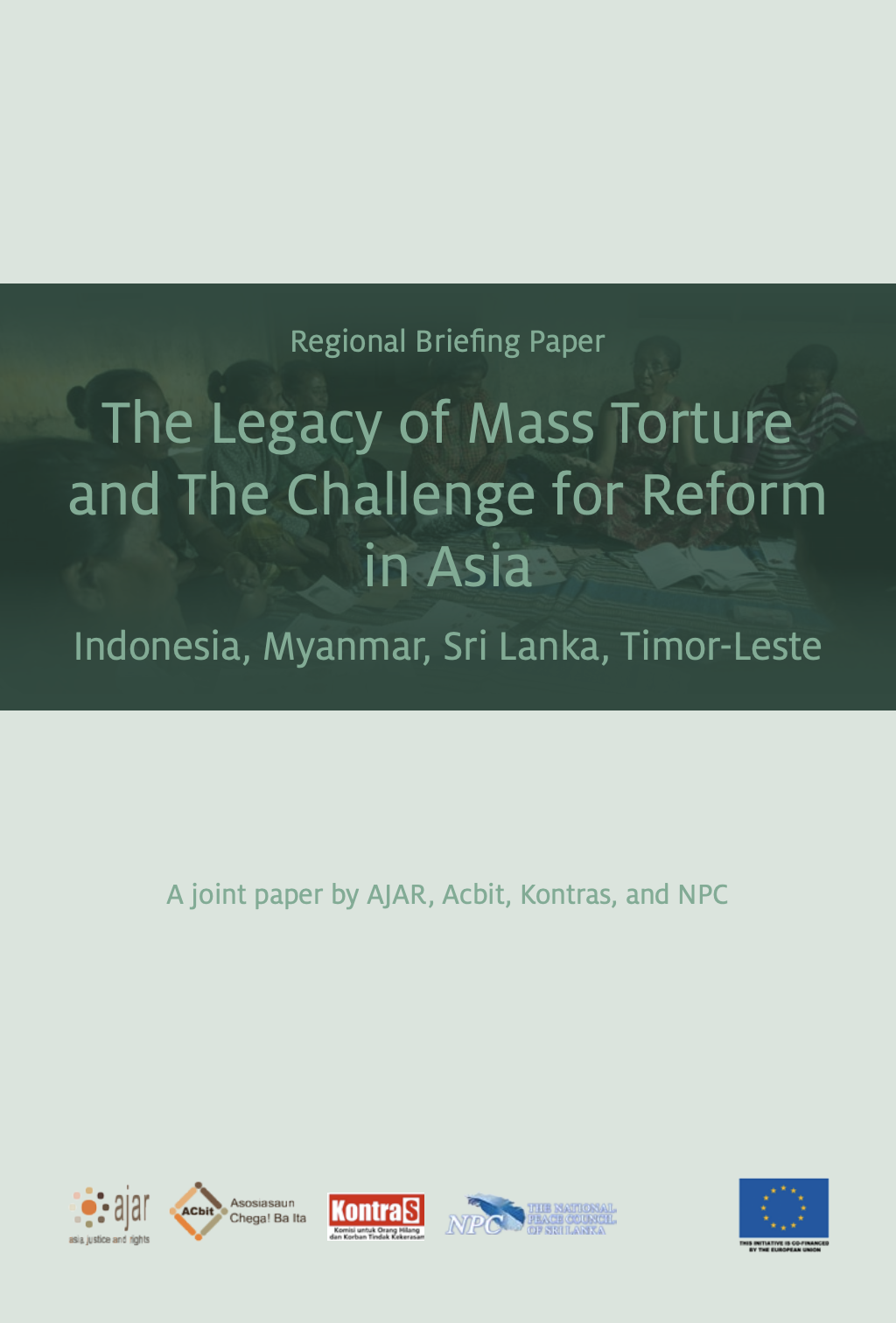Based on AJAR’s work with Legal Clinic Myanmar, Wimutti Volunteer Group (WVG), National Peace Council (NPC) of Sri Lanka, Asosiasaun Chega! ba ita (ACbit), and the Commission for the Disappeared and Victims of Violence (KontraS), this series of papers is the synthesis of four country studies on Indonesia, Timor-Leste, Sri Lanka, and Myanmar, with a special focus on accountability, healing, and gender justice after periods of mass torture. The experience of these countries reveals patterns of torture and impunity, as well as major challenges for accountability, healing, and gender justice. The briefings also allow some brief findings on the impact of torture on democratization, and on the role of human rights institutions, and point to broad but concrete recommendations for these and other states dealing with a legacy of torture.
Timor-Leste
After centuries of colonial neglect, Timor-Leste experienced an internal political struggle (1975), a brutal occupation (1975-1999), and a UN-sponsored referendum. The vote for independence in 1999 was followed by a scorched earth campaign by retreating Indonesian forces and their proxy militias. Since then there have been a series of efforts to address these serious crimes, including a “hybrid” court, a UN-backed truth commission, and a bilateral commission with Indonesia. These commissions recommended that the governments provide reparations and acknowledgement for victims of torture, particularly women, but they have yet to create the necessary funding and institutions. With a lack of political will to formally recognize the country’s history of torture and the victims who have lived through it, the offences of the past continue to cycle into the present.
Indonesia
In 2016, Indonesia’s post-authoritarian era of political reform entered its 18th year. As part of this process of Reformasi, Indonesia has made significant progress in upholding human rights for citizens, ratifying core conventions, and enacting regulations to promote and protect human rights. Indonesia’s constitution includes protections against torture, and the country has ratified the UN Convention Against Torture (CAT). However, Indonesia has yet to deal with mass torture that took place throughout the Soeharto regime (1965-1998). Furthermore, torture and other cruel, inhuman and degrading treatment or punishment are still not criminalized, with little accountability for perpetrators, and so torture remains pervasive.
Myanmar
Torture has a long history in Myanmar and has been widely employed by the military regimes in power after 1962. State security forces and government officials committed torture with impunity in prisons, interrogation centres, police cells, immigration and detention facilities, and throughout conflict-affected ethnic areas. Authorities used torture not only to extract information and false confessions, but also to punish, degrade, humiliate, and instil fear among political dissidents, journalists, human rights activists, and anyone suspected of criticizing the state. Even after a shift to a pseudo-civilian government in 2010, civil society organizations continued to document the same practices by police and military, and the UN Human Rights Council continues to call on the government to end such violations.
Sri Lanka
The Sri Lankan governments have a history of appointing committees and commissions to look into and report on atrocities with few concrete results. No less than 18 such bodies recorded thousands of pages of evidence from victims and witnesses. The Batalanda Commission, appointed to look into alleged mass torture and killings which took place during the height of the second JVP insurgency, has 6,780 pages in its 28 volume final report. However, no one was ever prosecuted, nor did victims or their next of kin ever receive any reparations.
